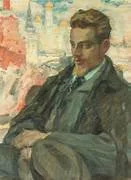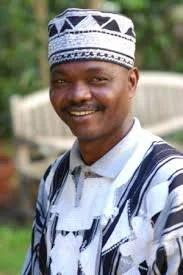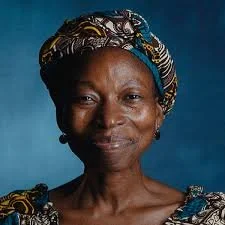On Lineage, Mentorship, and Calling
On the winter solstice of 2022, I ventured out into the Columbia River Gorge, a natural border separating Washington and Oregon. My purpose in venturing into this liminal space: to conduct ritual and declare a vow of intention to walk the path of the Bard.
Such rituals, I’ve found, often have far greater implications than I realize. Case in point, within ten days of this ritual, I was speaking, unknowingly, with a man who would become my teacher on this bardic path.
Though the suggestion to make this declaration came from a book I was working with at the time, called The Bardic Handbook by Kevan Manwaring, I might posit in retrospect that I was being goaded by some other order of being—called, if I might be so bold to say. Seeing through this lens—this awareness and reverence for the role the Otherworld plays in our lives—is a direct result of having cultivated an ongoing relationship with this man, this teacher, this wizard called Old School Nate.
I’m learning how important it is to share things like these: the fact that I’m being mentored man-to-man (though we live in different areas of the United States), the fact that I’m cultivating a relationship with the unseen (including ancestors of lineage and affinity, ancestral totems, deities, and more), and the fact that I am called to develop and offer my gifts, an ancestral boon carried from my ancestors to me from the Otherworld.
Matters such as these are basic, fundamental, the baseline, in the lives of indigenous peoples throughout the world. Those of us who live in the colonized “machine” world, might blanch at the idea of connecting with the dead (insert explanation of protestant christian conditioning), and there is certainly nuance and protocol, which I’m slowly learning. We don’t want to fall into the trap that “New Age” culture often does, thinking we can just shop around in the spiritual marketplace for the latest piece of high-vibe accoutrements. But there are living traditions whose practitioners freely offer teaching which we would be remiss not to open ourselves to.
Old School Nate, my teacher and mentor, is one who has availed himself of the teachings of several vital lineages by which I am now blessed, including ancestral work and teachings on the five elements of the Dagara tribe in Burkina Faso via Malidoma Somé. For the purposes of this writing, I’m wanting to focus on another thread in particular.
As I look back at life, I begin to see these moments of crossroads. It could’ve gone “that” way, but this is the way it went. And because it went this way, I am where I am. One such moment occurred for me during my time pursuing an undergraduate degree at Portland State University. This bout of education coincided with the upswell of the #metoo movement.
At the time I was feeling inspired by the work of Jordan Peterson, who seems to have always had an atmosphere of controversy surrounding him. At the time I discovered him, he was just blowing up, so he didn’t carry the charge that he’s so quickly associated with these days. Much of the material which drew me to him was drawn from Jungian thought, as well as his exploration of the intersection between myth and the embodied/psychological experience that we humans share with one another. But there was another thread which he followed into some troublesome territory: masculinity.
One major piece of creative work I produced in my undergraduate degree in music composition, as I engaged with Jordan’s work, was a set of pieces for men’s voices and percussion. I drew the poetry I used from a book called The Rag and Bone Shop of the Heart, a poetry book compiled by three men whose names I only knew in association with this book, but who would become very important to me: Michael Meade, James Hillman, and (most notably) Robert Bly. One of the poems that I was drawn to work with was written by Rainer Maria Rilke. Maybe you’ve encountered it before.
I live my life in widening circles
that reach out across the world.
I may not complete this last one
but I will give myself to it.
I circle around God, around the primordial tower.
I’ve been circling for thousands of years
and I still don’t know: am I a falcon,
a storm, or a great song?
I did a google search on the poem for some reason and found myself on a Reddit thread related to Jordan Peterson. One of the contributions to this thread mentioned a book called Iron John: A Book About Men.
Written by Robert Bly, I’d come to find this book was a pivotal catalyst in the 90’s for what has been called the mythopoetic men’s movement. These days, if you were to find yourself in a space which is even loosely associated with “men’s work”, you’d likely hear mention of this book. And I’d probably be the person mentioning it. This is not to say that its above reproach or that it perfectly encapsulates everything there is to say about either men or myth. 30+ years on from its writing, it's got some places which won’t land well in today’s context. That said, it sets a precedent.
I’ve read Iron John several times, and each time it's taken me further in understanding the power myth has to open our hearts and minds to historical, cultural, psychological, spiritual, and social matters which can’t be touched by the typically polarized overly-intellectual or hyper-emotional approach we experience as the norm in the social media click-bait landscape. It lays a foundation of understanding for the cultural context of masculinity in the western world by exploring a German folk tale called Iron John. Suffice it to say, it's highly influential for me personally, as well as the modern movement of men’s work.
In reading this book, I sensed a depth behind it, which I am only now beginning to appreciate. This was not just another white man pontificating on the current moment. This was a poet who had clearly read, and studied, who had lived, and felt through that living. Beyond that, he was rooted in something—something which is not clearly named in the book. But I’d call it “lineage”. This I found to be in stark contrast to the purely psychological approach I had seen Jordan Peterson using.
I first came into the orbit of Ian Mackenzie in 2020 via the Mythic Masculine podcast. As he shares many times in various episodes, Iron John was also a catalyst in the journey which led him to start the podcast. We had a number of calls after I began supporting his work on Patreon. Well, perhaps a year and a half later Ian was calling me up, asking if I’d like to lead the men’s lodge on the Mythic Masculine Network. A few months after that he, I, and a few of our compatriots were launching The School of Mythopoetics.
I’d been devouring most material I could find that wove thee topics of myth and masculinity since discovering Iron John, but my practice of storytelling began in those months of transition between the Mythic Masculine Network and the School of Mythopoetics. We set out to re-light and carry the torch which had been lit by Robert Bly and (I would come to learn) so many others during that time in the eaarly 90’s. It was utterly surreal to find myself in a crew which was ignited by a passion for myth, just as I was.
Another name that began floating in the air around me was that of Daniel Deardorff. Still now, I’m only beginning to appreciate the depths of what this man did as a mythsinger. His book The Other Within stands austere and formidable; a testament to his immense knowledge, wisdom, and the depth of insight he drew from myth as a cripple, living in a world which cares little for those existing on the fringes of modernity’s definition of normalcy.
Old School Nate, my teacher, had joined the School of Mythopoetics in the fall of 2022, responding to the beacon that we’d lit. He commented on a post I’d helped author, regarding one of the first mythic figures which had come alive in my imagination: the Great God Pan. He invited a live conversation with me, which I enthusiastically took him up on. That was our first conversation, just before the New Year’s dawning of 2023.
In the first year of working together, I came to learn who it was I was contending with. I learned that Nate had lived alongside Daniel Deardorff for many years in Port Townsend, that he had studied under Danny, and carried a traditional understanding (from Danny, as well Malidoma Somé) that offered immense insight into what is stored within myth, and how to work with myth to uncover understanding not apparent to the naked eye. In turn, I learned that Danny had been a student of Robert Bly’s. It began to land in my understanding that my teacher was not merely my teacher, but a lineage holder in the tradition which had catalyzed the awakening I experienced while studying music amidst the upsurge of #metoo.
I write this following a weekend which marks a powerful threshold for me as a Bard. I carried the story of Parsifal and the Fisher King over the course of a three day grief ritual for men. The story came through in parts, woven amidst large sharing circles, group song, dance, breathwork, and ritual shrine work in the tradition of the Dagara tribe of Burkina Faso, brought to the West by Malidoma and Sobonfu Somé.
In the tale of Parsifal, this young boy is kept hidden from the world after his father has been killed in knightly combat. His mother raises him in the forest, hoping he will never be lured by the glorious life of the knight. Much to her chagrin, he is out in the forest one day and several knights come upon him wearing gleaming armor atop the magisterial power of their horses. He is starstruck and his path is set. He is determined to become a knight from that moment forward.
Towards the end of the story, after he has done some hard living, made many mistakes, been separated from his wife, fought in so many battles, and been mentored by his elders, he finds himself confronted by a foreign knight. He shudders as he realizes that this man may be his match. He may never see his wife again. Nevertheless, he charges forward. Martin Shaw uses a phrase to capture this moment, “He was in his myth.”
I doubt words can capture the visceral truth these words now carry in my being.
He was in his myth
The battle call I uttered as I told of Parsifal’s charge toward this enemy rings in my body. Again, he was the awestruck boy who saw those knights in their gleaming armor riding through the forest. He was that boy, and yet he was also the knightly figure which he had beheld in awe.
As I painted this picture with my voice, body, and words, so too was I again the young man, discovering Iron John—the spark which had lit the mythopoetic men’s movement—discovering the cripple king of mythsinging, discovering the gnarly wizard who now schools me; the wizard who was/is in league with this order of men who gleam as sunlight reaches through forest branches. I was that young man, and I was also the bard conveying story to this group of men who came together to utter grief and praise in the sight of the Otherworld, just as I imagine Robert Bly was doing in the 90’s.
In other words: I was in my myth!
…
Now, if you’ll allow me a, perhaps, heavy hand for a moment…
I write this not simply to revel, though that would be plenty of reason on its own, but to make visible what is not seen. Whatever may come of this Bard, he is not doing this alone. He stands with poets, singers, grievers, storytellers, ritual keepers, mystics, and wielders of old magic at his back and to his sides. He stands with close friends to catch him when he falters. He stands with those who are still in touch with the dreaming. And he cannot do what he does alone.
I write this also to share something of what is possible. I write this as a beckoning.
Dream. Dream with all your heart. And that isn’t to say, “decide what you want to be” or “figure out your calling”. It's to say, “your heart knows the way. Let it be the guide.” Parsifal didn’t decide. Parsifal didn’t figure anything out. Parsifal beheld something which ignited his soul. And he listened to that.
The gnarly wizard at my back has been helping me see the tapestry of Otherworldly threads back through time, which have been part of a deeper weave. May I continue to humbly learn what it is I am needing for the fulfillment of my gifts.
And may you also be met with such wise and uncanny teachers. May they be well tuned to the unique gifts which you carry, the lineage to which you are called.
In grace, Rainer Moon Raven





